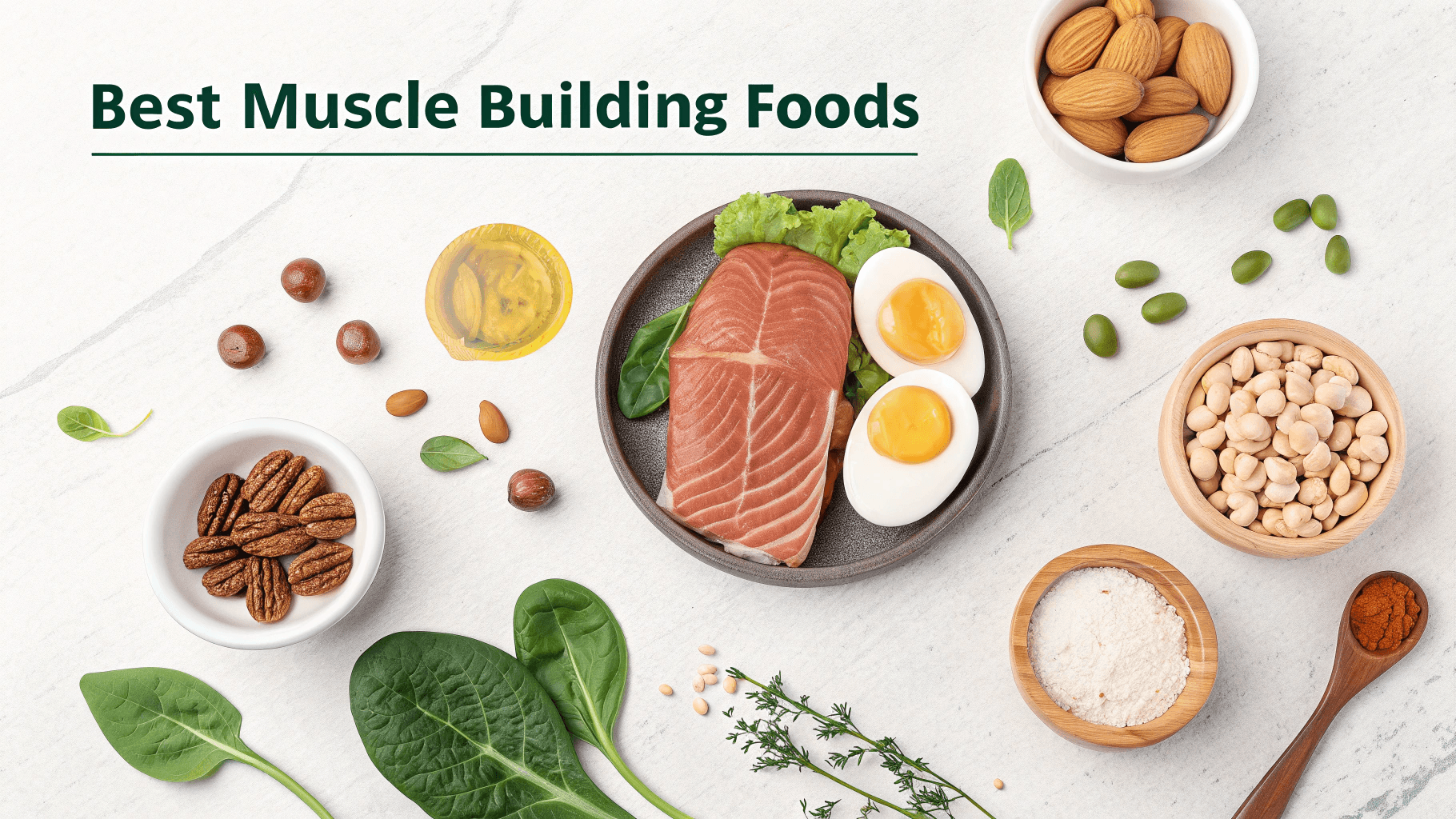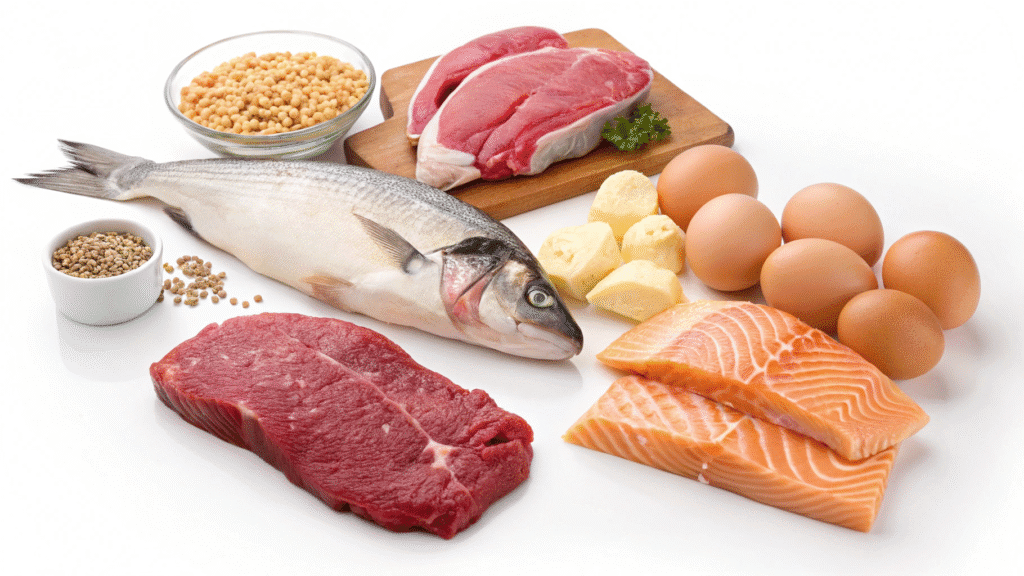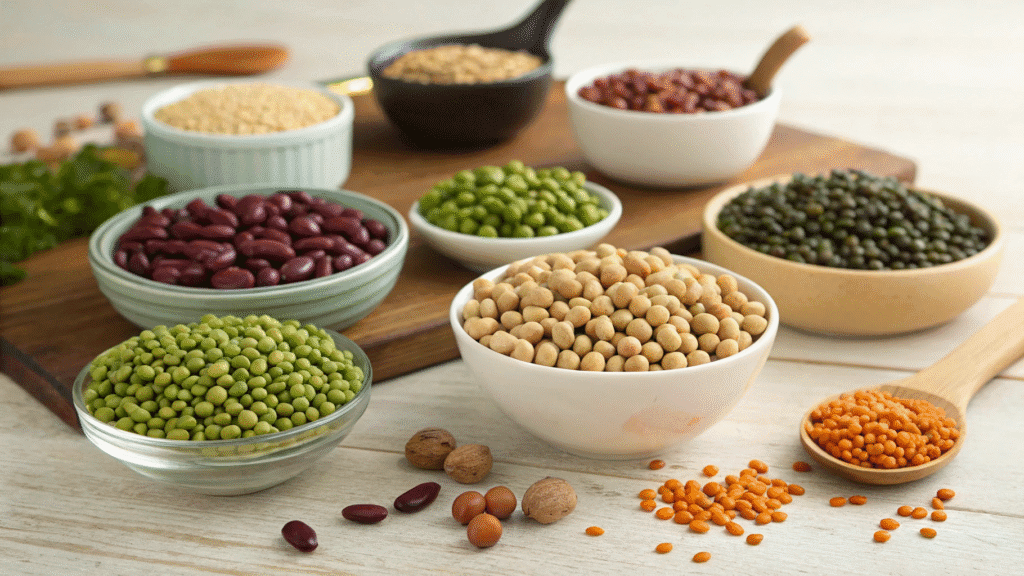Best Muscle Building Foods can play a key role if you want to sculpt your body or tone your figure. Sports nutrition can help you achieve your goals.
The principle is simple: just adapt your diet to provide your muscles with everything they need for proper development, maintain healthy gastrointestinal function, and limit inflammation caused by exercise. Find out which foods to put on your plate to build muscle. You may be surprised!

What role does nutrition play in muscle development?
As you may have noticed, muscle mass development is not solely linked to physical exertion and regular exercise. To increase your muscle mass, you also need to “feed” your muscles by adapting your diet. Among the different food groups, proteins play a fundamental role.
They are composed of amino acids that help build and repair muscles, optimize muscle recovery after exercise, and provide the energy your body needs. We can distinguish between:
-Essential amino acids, which the body cannot produce itself and which are therefore obtained exclusively from our diet. There are nine of them: tryptophan, lysine, methionine, phenylalanine, threonine, valine, leucine, isoleucine, and histidine.
-Non-essential amino acids synthesized by the body from other amino acids, including: alanine, arginine, asparagine, aspartic acid, cysteine, glutamine, glutamic acid, glycine, histidine, proline, serine, tyrosine, etc.
Best Muscle Building Foods : Animal proteins
Meat is one of the best sources of protein, as it contains the nine essential amino acids that the body needs to function properly.
However, it is important to remember that it can be high in saturated fatty acids.
When aiming to build muscle, it is best to choose “lean” meats such as poultry (skinless chicken or turkey breast), lean beef, veal, and ham.
Fish, especially fatty fish such as salmon, tuna, and mackerel, provide both protein and essential fatty acids (polyunsaturated).

Eggs are also among the most popular foods for promoting muscle growth. Egg whites contain albumin, which is the most abundant protein in the blood, as well as all nine amino acids essential to the body.
Dairy products are popular for their protein content, but also for their calcium, a mineral essential for bone growth. Semi-skimmed and skimmed milk, low-fat cottage cheese, and yogurt are low in fat but high in lactose. Lactose, composed of one molecule of glucose and one of galactose, helps supply muscles with glycogen (via glucose), especially after sustained exercise.
Plant sources
While meat contains large amounts of protein, plant proteins are also useful for diversifying your diet. However, it is rarer to find plant foods that contain all nine essential amino acids. The assimilation of plant proteins is slightly less efficient.
On the other hand, plant proteins must be combined with each other to meet the body’s essential amino acid requirements (e.g., combining grains and legumes). Rich in nutrients and low in fat, they are ideal for athletes who want to build muscle mass.
Best Muscle Building Foods : Cereals
Cereals are a popular source of carbohydrates for athletes, particularly for storing and releasing energy in the muscles. It is best to choose unrefined, whole-grain cereals for a more gradual release of carbohydrates and, therefore, energy.
Best Muscle Building Foods : Legumes
Although they are often overlooked in modern diets, legumes are notable for their vegetable protein and fiber content. Lentils, beans, broad beans, soybeans, chickpeas, lupins, and split peas can be combined with grains to meet essential amino acid requirements. Another advantage is their mineral and vitamin content.

Oilseeds
This family includes oil-bearing fruits (almonds, pistachios, walnuts, peanuts) and oilseeds (sunflower, rapeseed, pumpkin, sesame, flax).
In addition to being rich in protein, oilseeds contain high-quality lipids (the famous omega 3, 6, and 9) and vitamin E.
Why alternate between plant-based and animal-based proteins?
Even if you are not vegetarian, it is wise from a health perspective to alternate between meat and plant-based products or to combine them. Contrary to popular belief, plants can contain large amounts of protein. For example, 100 g of chicken breast contains 18 g (according to CIQUAL) of protein, compared to 9 g for chia seeds and 36 g for lupin according to CIQUAL reference tables.
On the other hand, while animal proteins contain all nine essential amino acids, they also contain (in some cases) more saturated fat and fewer vitamins and minerals than plant proteins. Diversifying your diet by including reasonable portions of protein from both groups therefore helps to build muscle mass, while providing a variety of nutrients to keep you in perfect health.
What should we think about protein powders?
Whether as a fad or a way to make life easier for athletes, alternative sources of protein appeared a few years ago. Today, everyone is talking about whey, a protein powder derived from cow’s milk.
If you want to use whey to increase your protein intake, be particularly careful about the origin of the products. Some powders are made from completely denatured dairy manufacturing residues. These are therefore empty calories, devoid of nutrients that are beneficial to the body.
Basal Nutrition offers a tastier and more natural alternative: preparations rich in vegetable protein and fiber, made from raw, healthy ingredients such as flax seeds, einkorn wheat, lupin, and dark or light beer draff.





